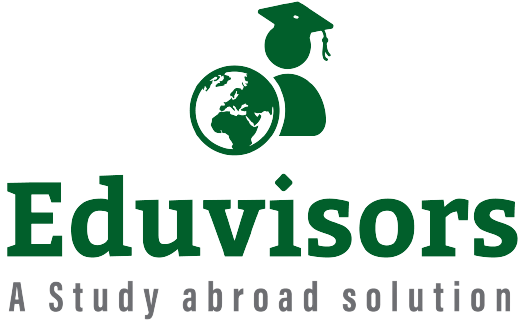Europe’s aviation sector is a vital and influential player in the world of air travel. Europe’s aviation industry, which includes a wide range of airlines, airports, and aerospace industries, is well-known for its long history, inventive technological advancements, and dedication to safety.
It is an essential economic engine that plays a significant role in both international travel and seamless connection inside the continent. This introduction offers an overview of the diverse world of European aviation, where history coexists with modern developments in a field that continues to influence how people travel through the air.
This Article Includes
ToggleOverview of the Aviation industry in Europe
Europe’s aviation sector is very significant! Airports, airlines, and aircraft manufacturing businesses are all included. Europe has a long history of flying and is renowned for utilizing cutting-edge technologies to ensure passenger safety.
It not only links the nations of Europe, but it also has a significant impact on international travel. Consider it an active and essential air travel component, fusing history and contemporary technology.
Career Path for Professional Pilot
Professional pilots usually start their careers by earning their private pilot’s license and then go on to more advanced training to earn their commercial and instrument ratings. After gaining experience and accruing flying hours, many pilots earn a certified flight instructor (CFI) rating.
Opportunities then grow into positions such as pilots for regional flights, leading to significant airlines or more specialized industries like corporate or freight aviation. Pilots frequently need to accrue flight hours to be eligible for higher-level roles, and ongoing training and certifications are crucial for professional advancement.
Three essential qualities for success in the fast-paced world of professional aviation are adaptability, a solid dedication to safety, and practical communication skills
Commercial Airline Pilot
Commercial airline pilots operate large aircraft to transport passengers and cargo. Their journey usually begins with obtaining a private pilot’s license and advanced training for commercial and instrument ratings. Many gain experience as certified flight instructors.
As they accumulate flight hours, opportunities arise to become regional airline pilots, eventually progressing to significant airlines. Continuous training and certifications are vital for career growth. Commercial airline pilots prioritize safety, communicate effectively, and adapt to the dynamic nature of aviation.
Cargo Pilot
Comparable to a captain of the skies, a cargo pilot focuses on moving cargo rather than passengers. Rather than transporting holidaymakers to exotic locations, they adeptly handle enormous aircraft laden with cargo.
These pilots are vital to the worldwide transportation of goods because they ensure that everything travels to its destination promptly and safely, including electronics and daily necessities. Their work requires meticulous planning, accurate navigation, and a strong sense of accountability for the priceless cargo they move.
A deep aviation knowledge and a comprehensive understanding of logistics are essential for this role to facilitate seamless business operations in the air.
Corporate and Business Aviation
The term “corporate aviation” describes the use of private aircraft by companies for a range of functions, including executive travel, cargo delivery, and specific missions. It provides businesses with the efficiency and flexibility of air travel customized to meet their unique requirements.
A wide range of aviation services businesses use are included in business aviation, such as aircraft ownership or leasing, chartering flights, and using fixed-base operators (FBOs) for maintenance and refueling. Businesses can improve overall productivity, save time, and optimize travel logistics with the help of this industry.
Business aviation is essential to the efficient and tailored air transportation that businesses worldwide can benefit from, whether small enterprises utilizing charter services or large corporations operating their fleet.
Flight Instructor
A flight instructor’s essential function is molding the upcoming generation of pilots. They teach prospective pilots theoretical knowledge and practical skills, assisting them in progressing from basic maneuvers to more complex techniques during flight training.
Instilling confidence and decision-making skills in their students, Flight Instructors emphasize safety and accuracy while imparting aviation principles. Their experience and commitment make a big difference in producing knowledgeable, proficient pilots who can fly quickly.
Agricultural Pilot
An expert pilot who operates aircraft to support different agricultural activities is known as an agricultural pilot. These pilots are essential to modern farming because they use airplanes or helicopters to control pests, seeding, and crop dusting.
Their ability to navigate and fly precisely is crucial for accurately distributing seeds, pesticides, and fertilizers across large agricultural areas. Agricultural pilots are essential to the productivity and efficiency of the farming industry because they help maximize crop yields and preserve the general health of crops.
Emergency Services Pilot
An Emergency Services Pilot is essential to ensure community safety and respond to crises quickly. They enable quick and effective emergency medical services by flying specialized aircraft to deliver medical personnel, supplies, and equipment to disaster sites.
These expert pilots support search and rescue operations, disaster relief efforts, and emergency medical evacuations by precisely navigating hazardous situations. Their prompt and resolute actions highlight the critical nexus between aviation expertise and emergency response, and they significantly contribute to saving lives during times of distress.
Certifications and Licenses Required
For those interested in a career as a commercial pilot, especially those seeking positions in airline transport, certifications and licenses are essential. To guarantee that pilots fulfill the strict safety and competency requirements established by aviation authorities, various licenses, ratings, and endorsements must be obtained. Let’s examine the essential licenses and certifications needed by commercial pilots.
Commercial Pilot License (CPL)
Expanding upon the PPL, the CPL permits pilots to get payment for their labor. Requires completing written and practical exams and additional flight hours, typically around 250. CPL holders are compensated to operate as captains or co-pilots.
Airline Transport Pilot License (ATPL)
The ATPL, the highest certification for pilots, is necessary to work as a captain on commercial aircraft. Necessitates significant flight experience, typically between 1500 and 2000 hours, and passing written, oral, and practical exams. Permits pilots to operate an aircraft used for air transportation as the captain or first officer.
Type Ratings And Additional Endorsements
Larger or more complicated aircraft usually need type ratings, which are particular endorsements for particular aircraft types. Pilots need to go through additional training and assessment tailored to the kind of aircraft. Every type of rating corresponds to a specific aircraft model or family.
Larger or more complicated aircraft usually need type ratings, which are particular endorsements for particular aircraft types. Pilots need to go through additional training and assessment tailored to the kind of aircraft. Every type of rating corresponds to a specific aircraft model or family.
Job Market Trends for Pilots in Europe
There are some noteworthy trends in the European pilot job market. One crucial factor is the growing need for pilots due to the expansion of the aviation industry. There is a constant need for qualified pilots to handle the increasing passenger demand because of the growth of low-cost airlines and increased air travel.
In addition, the retirement of seasoned pilots creates job openings for those just starting in the field. Many airlines are hiring to cover the void left by retiring pilots, which means there are opportunities for people who want to work in aviation.
There is a trend in technology toward automation and sophisticated cockpit systems. Pilots must change and learn new abilities, like using contemporary avionics. Airlines are looking for applicants who can work well with the latest technologies, which aligns with their ongoing commitment to efficiency and security.
It’s crucial to recognize the influence of outside variables that can affect the stability of the labor market, such as the state of the world economy and unanticipated catastrophes like the COVID-19 pandemic. Notwithstanding sporadic difficulties, the general trend points to a promising future for would-be pilots in Europe, with many chances arising due to the aviation industry’s growth and dynamic nature.
Resume and Cover Letter Tips
When applying for a European pilot career, a CV and cover letter designed explicitly for the aviation industry are required. Here is some guidance:
Resume Tips
- Resume Advice: Structure: Make it easy to read and professional. And add areas about Experience, Education, Skills, Licenses and Certifications, Objective/Summary, and Contact Information.
- Objective/Summary: Emphasize your qualifications, experience, and reasons for applying to the position in the aviation industry. For every application, customize this area by highlighting specific abilities or experiences that align with the job description.
- Experience: Provide your employment experience in aviation, including the number of hours you’ve flown, the kinds of aircraft you’ve flown, and any specialized positions or duties. Emphasize your training, leadership, and any other notable accomplishment.
- Education: Add any relevant schooling you have, such as degrees in aviation, flight training, and any other aviation-related certificates or courses.
- Licenses and Certifications: Provide a clear list of your permits and certifications, including type ratings, FAA, and EASA.
- Proficiency: Emphasize soft skills (like teamwork and communication) and technical skills (like familiarity with specific aircraft and navigation systems) that are pertinent to the aviation sector.
Cover Letter Tips
- Personalization: Please address the cover letter to the recruiting or recruiting manager. To make the information more individualized, learn about the business and role.
- Introduction: Make an excellent introduction by expressing your interest in the role and the business.
- Highlight of the Experience: Summarize your credentials and aviation experience, highlighting your strong suit for the position.
- Link Qualifications to Work Requirements: Talk about your enthusiasm for working for this airline or organization and how your experiences and skills match the employment requirements.
Interview Preparation
Technical Preparation:
- Know the Aircraft: Understand the many kinds of aircraft that the airline uses. Examine their system capacities and technological requirements.
- Regulations and Procedures: Continue to learn about standard operating procedures, safety measures, and European.
Aviation Safety Agency (EASA) standards.
- Navigating in the weather: Recognize the effects of weather patterns and navigational techniques on aircraft operations.
- Procedures for Emergencies: Be ready to talk about emergency procedures and how you handle life-threatening Circumstances.
During the Interview:
- Pay Close Attention: Take careful note of the questions given. Give your answer some thought before you respond.
- Be Direct and Honest: Tell the truth about your background and abilities. It’s acceptable to acknowledge ignorance when it comes to a question.
- Emphasis Safety: Emphasis your dedication to following standard operating procedures and safety.
Frequently Asked Questions
In Europe, financing pilot training can be accomplished through various approaches based on specific needs. Trainee pilots often apply for bank loans created especially for flight instruction. Certain flying schools may provide payment plans or financing options to reduce the financial burden. Other options are grants, scholarships, or sponsorships from aviation-related organizations and institutes.
A high school degree or equivalent is necessary to become a European commercial pilot. After completing specialized flight training, one must get a Private Pilot Licence (PPL) and a Commercial Pilot Licence (CPL). Pursuing additional certifications such as Instrument Rating (IR) and Multi-Engine Rating (ME) is expected.
In Europe, the average course cost leading to an Airline Transport Pilot Licence (ATPL) can vary greatly, usually from €60,000 to €100,000 or more. The type of aircraft used for training, the length of the program, and the flight school are some factors that affect the cost. It’s also essential to account for other expenses like lodging, tests, and license fees.
Europe’s pilot job market is improving, with rising demand from low-cost airlines and an aging workforce. However, competition remains high for first-time officers, and unemployment is still around 15%. Before entering this competitive field, consider the challenges, including training costs and demanding work conditions.



